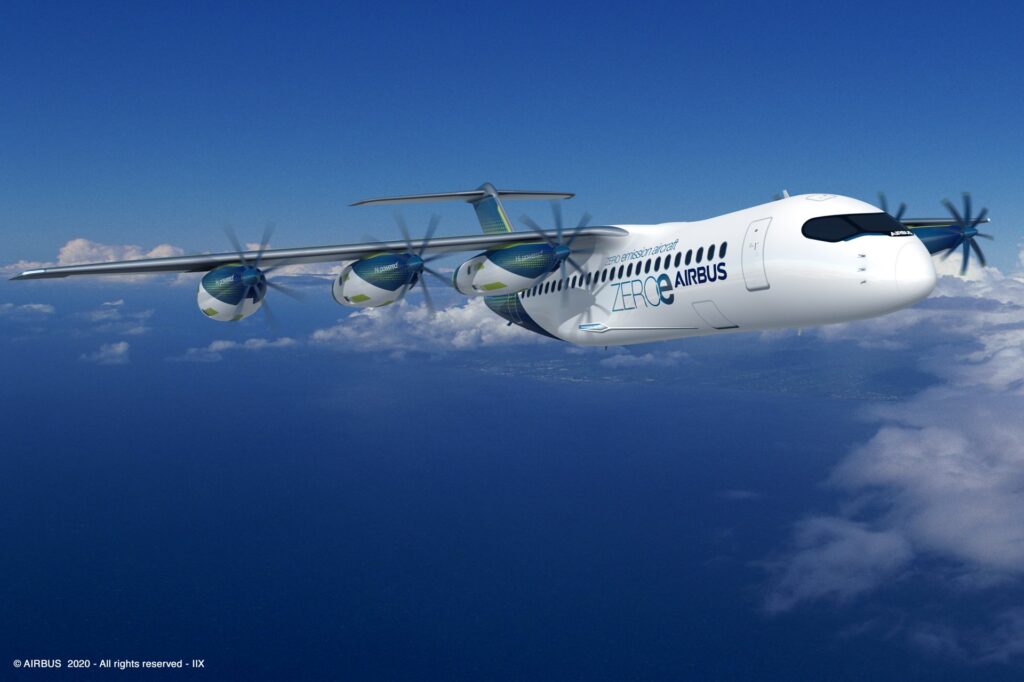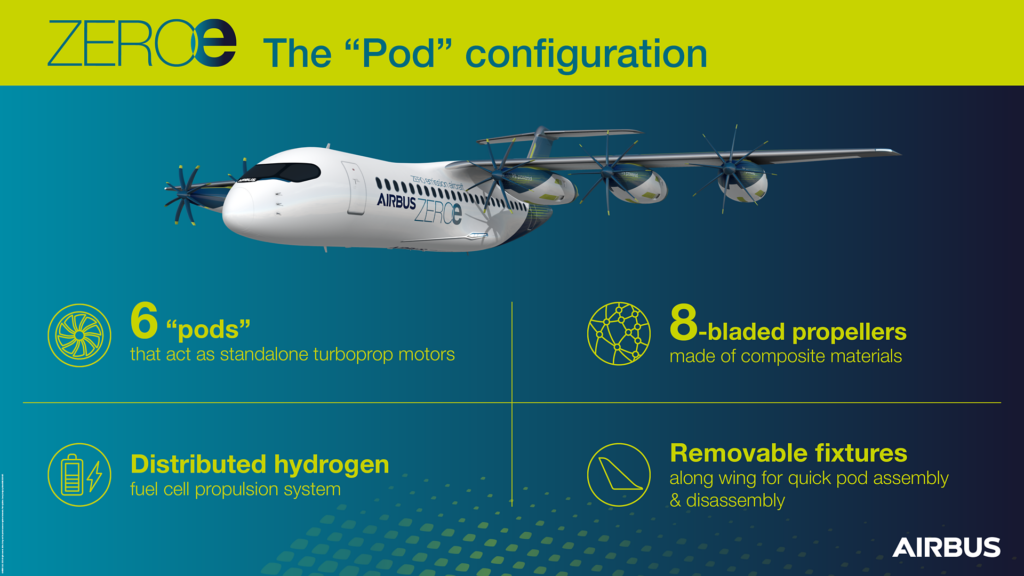
Twinjet, s-duct, winglets, contra-rotating propellers: the aviation industry has developed numerous configurations over the last five decades that have enabled aircraft to fly higher, faster and longer. Now, Airbus engineers are unveiling a new configuration as part of the ZEROe programme that could enable a passenger aircraft to fly farther than ever without emissions.
The innovative approach consists of six, eight-bladed “pods” mounted beneath the aircraft wing. While the “podded” engine is not a new concept in aviation, these “pods” are not designed to be driven by any ordinary propulsion system: hydrogen fuel cells are among the key components.
“The ‘pod’ configuration is essentially a distributed fuel cell propulsion system that delivers thrust to the aircraft via six propulsors arranged along the wing,” explains Matthieu Thomas, ZEROe Aircraft Lead Architect. “Hydrogen fuel cells have very different design considerations, so we knew we had to come up with a unique approach.”
Indeed, hydrogen fuel cell technology has yet to be scaled up to a passenger-size large commercial aircraft. Smaller experimental hydrogen aircraft, comprising up to 20 seats, can rely on a traditional fixed-wing configuration with two propellers. But more passenger capacity and longer range require another solution. This is why Airbus is studying a variety of configurations, including “pods,” to determine which option has the potential to scale up to larger aircraft.

Click the link below to read the full story!
https://www.airbus.com/newsroom/stories/hydrogen-pod-configuration.html